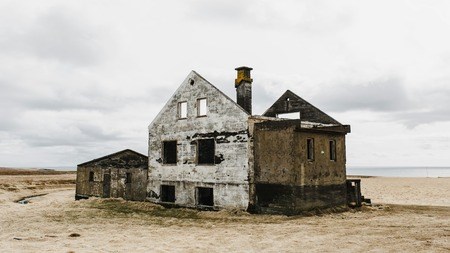While global politics might feel far removed from local real estate, trade decisions made thousands of kilometres away can have a real impact on homeownership and property investment in South Africa.
With recent shifts in U.S. tariff policy stirring economic debates, South African buyers, sellers, and investors are left wondering: could a global trade war affect our local housing market?
Here's what you need to know.
Global trade decisions reverberate through local markets
The recent announcement by the U.S. to implement a 90-day pause on most tariffs, excluding China, has sent ripples through global markets. While this move has been met with optimism in various sectors, there will be knock-on effects on the South African property market.
“Global trade policies significantly influence South Africa's economy. Tariffs and trade tensions can affect the cost of goods, employment rates, and overall economic growth. When major economies like the U.S. engage in trade wars, the resulting economic uncertainty can lead to decreased investor confidence and potential capital outflows from emerging markets, including South Africa, leading to a depreciating rand, increased inflation, and higher interest rates—all of which can dampen the property market,” says Adrian Goslett, Regional Director and CEO of RE/MAX of Southern Africa.
Interest rates and the knock-on effect
Elaborating on this phenomenon, Goslett explains that a weaker rand makes imported goods more expensive, contributing to inflationary pressures. To combat inflation, the South African Reserve Bank might raise interest rates, increasing borrowing costs and potentially reducing demand in the property market. “We have only recently begun to enjoy the respite of lower interest rates – let’s hope conditions don’t force the Reserve Bank to swing back into a hiking cycle.”
Some relief, but uncertainty remains
Thankfully, the decision to implement a 90-day pause on tariffs for most countries has been perceived as a step toward stabilising global trade relations. Goslett says that this pause could ease some of the economic uncertainties that have plagued international markets and should hopefully hold off the need for any interest rate adjustments.
“For South Africa, a reduction in global trade tensions will hopefully bolster investor confidence, potentially leading to a more stable rand and improved economic conditions conducive to property market growth,” says Goslett.
However, the exclusion of China from this reprieve means that significant global trade tensions remain unresolved. Given China's pivotal role in the global economy and its status as a major trading partner for South Africa, ongoing U.S.-China trade disputes could have indirect adverse effects on South Africa's economic landscape.
What this means for property investors
Despite the uncertainties triggered by global trade tensions, property investment in South Africa remains a resilient asset class, offering long-term appreciation and returns. Strategic investors who keep this in mind can navigate short-term volatility and capitalise on opportunities arising from market adjustments. “Property remains a solid foundation within diversified investment portfolios. Those who want to capitalise on the opportunities that emerge during these uncertain times should speak to a reliable real estate professional for some free advice and insights,” Goslett concludes.
Final thoughts
While South African homeowners and investors may not be directly involved in global trade negotiations, the ripple effects of these events are worth watching. A stable global economic environment creates favourable conditions for local property growth. As such, keeping an eye on international developments and maintaining a flexible investment strategy can help you stay ahead. In volatile times, partnering with a trusted real estate professional is one of the best ways to ensure your decisions are guided by market insights—not just market noise.





